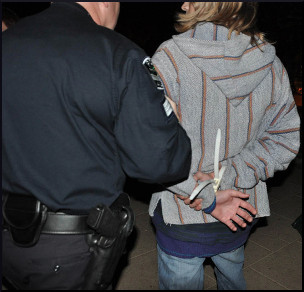
Paperwork has never been more important. Identification is necessary to open a bank account, cash a check, apply for a job, get a mailbox, rent a room, get food stamps and other benefits, sleep in a shelter, or even to board the Greyhound and leave town. In a city where the public library has computers, the privilege of using one to check email or search job listings will probably require I.D.
Almost everyone has had some kind of I.D. at one time or another, but on the streets, material objects come and go. Possessions are all too easily lost or stolen. Many of the people experiencing homelessness also struggle with mental health issues, PTSD, symptoms of head trauma, advanced age, and/or chronic pain. They are constantly being uprooted and “moved on.” Many facilities that serve the homeless do not allow belongings to be brought inside. Backpacks fall into rivers or are swept away by flash floods.
A Treacherous World for the Homeless
A person might stash a few belongings in a seemingly safe place, like the rough sleeper who left his blanket and pack in the electricity cupboard behind a church. He returned to find that another street person had dragged his things out and set them on fire— the sixth time in just a year that similar destruction had happened to him. Or it might be an over-zealous municipal crew, enforcing a city ordinance, that burns a homeless person’s possessions or pitches them into a truck bound for the landfill. Cleanup missions and “sweeps” carried out at camps can affect the inhabitants’ lives with apocalyptic fury.
To replace a birth certificate costs money and requires an address where the hard copy can be sent. Even a successful request can take as long as four months to be fulfilled, and that is only the first step. Acquiring a Social Security card can take weeks, and the Department of Motor Vehicles, where even non-driving I.D. cards originate, can present additional difficulties and delays. To acquire I.D. requires proof of residency and a legal address—the very things a person needs the I.D. in order to get. The process can be so Kafkaesque that some advocates spend all their volunteer time helping people with just that one problem.
Protect and Serve
Then, after jumping through all the bureaucratic hoops, imagine having your I.D. confiscated by an officer of the law—a person who has sworn to serve and protect citizens, including people experiencing homelessness. Richard R. Troxell, president of House the Homeless in Austin, Texas says:
All social services in Austin require photo identification. To be left without photo identification only acts as an additional barrier to escaping homelessness.
That is a polite understatement. Stealing and deliberately destroying a person’s identification does not only cause massive inconvenience and hardship, it can be a de facto death sentence. This terrifying act of personal annihilation can and does happen much too frequently, all across the country. It can result from a casual police encounter, and there are reports—even from such beautiful and smiling states as Hawaii—of I.D. being thrown away when a homeless person goes to jail.
In Austin, House the Homeless held its 14th Annual Thermal Underwear Distribution Party on January 1, 2015. As always, the attendees were invited to participate in a survey, which this year 277 people did. The average age of survey respondents was 45; their average time spent homeless was about 9.5 years; their average time in Austin just over 6 years. This year’s topic was interactions with the police.
Have you ever had your ID taken by police and not returned?
Yes: 92 No: 183
Approximately 1/3rd of all people surveyed had their identification permanently taken from them by the police.
A similar question concerned other possessions, such as backpacks, bags, bedrolls, clothing items, and so forth, any of which might hold papers and other personal valuables:
Have you ever had your things taken by police without giving you a receipt and the name of a contact person to get your things back?
Yes: 125 No: 152
Almost half the folks answering the question reported improper impounding practices conducted by officers of the Austin Police department.
Is it even necessary to point out how wrong thievery is when perpetrated by the very people who are supposed to be better than average, who are held up as examples of (as the old saying had it) Truth, Justice, and the American Way? We leave with a few words from Lisa Burrell, a social worker who helps the homeless:
It’s not uncommon for people to lose their possessions…The reaction I see in them is very similar to people who have been burgled and had their possessions taken. The loss is hard and it’s very deep.
Reactions?
Source: “Homeless man’s bag torched near Horsham church,” WSCountyTimes,co.uk, 07/21/14
Image by Ann Harkness


